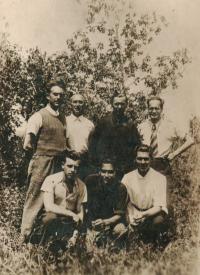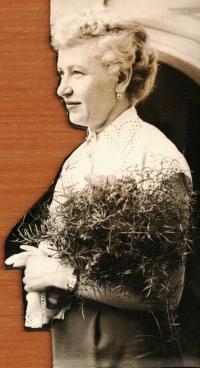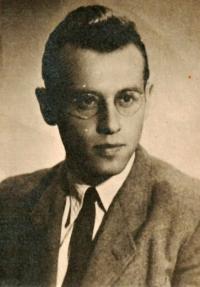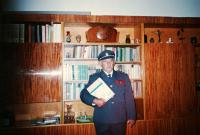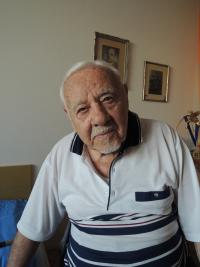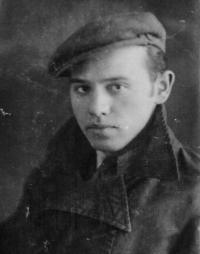„I was bombed by Germans, Russians, and Americans, and I have survived it all.“
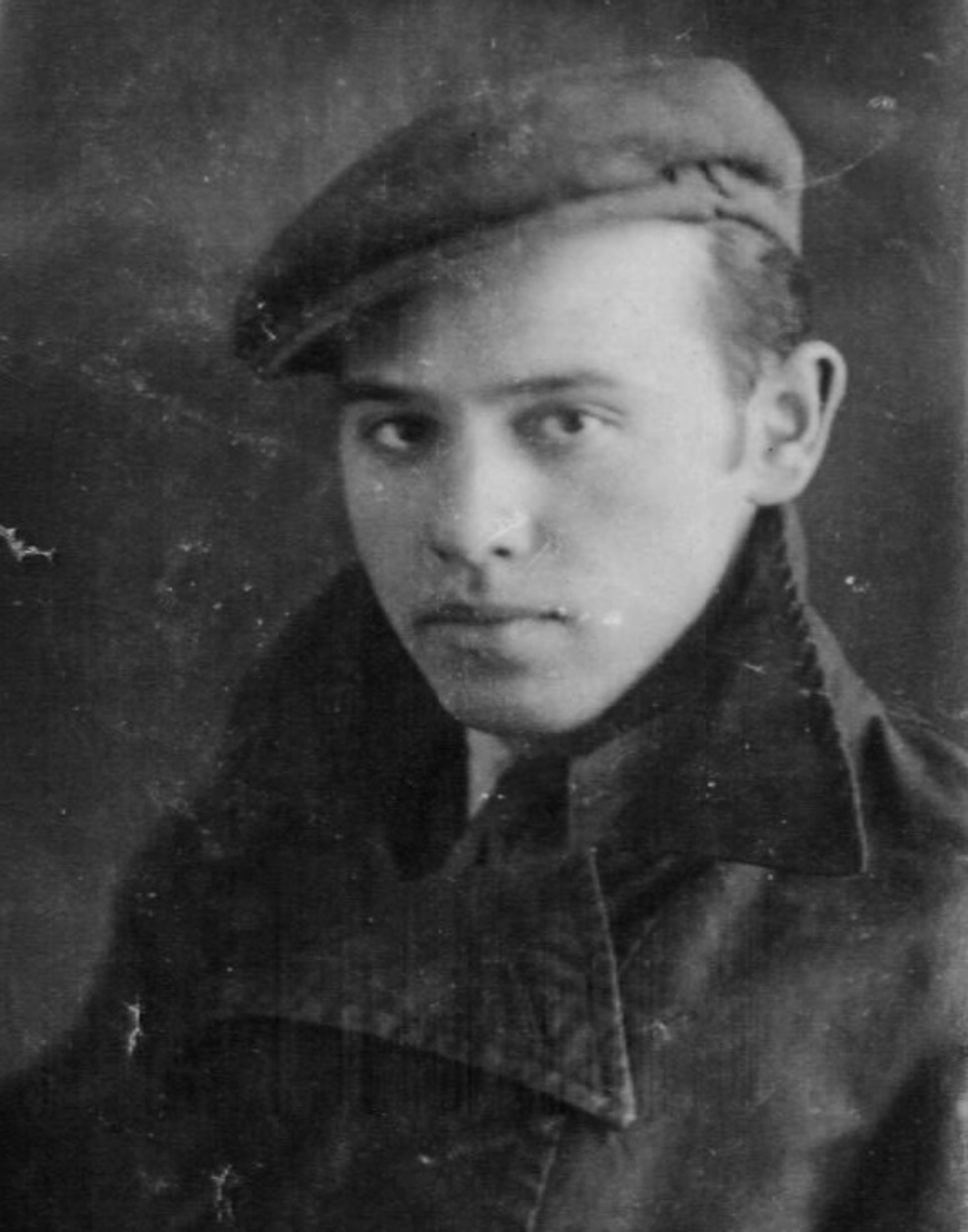
Stáhnout obrázek
Bohumír Hájek was born June 23, 1920, in Židenice at the outskirts of Brno. Shortly after the occupation of Czechoslovakia by the German army and establishment of the Protectorate of Bohemia and Moravia, he and his two friends decided to flee Czechoslovakia to join a foreign army. They escaped to Poland via Slovakia, where they spent several weeks in prison. They eventually reached Katowice where they awaited transport to England together with other refugees. However, this never happened because Germany attacked Poland and the war broke out. They escaped eastwards and spent some time in Volhynia. From there they went to Rostov-on-Don, where they worked in the local sovkhoz. Bohumír later went to Taganrog alone, where he worked in a factory until September 1941 when Germany declared war on the Soviet Union. He joined the Red Army with several of his friends, but they were captured before they were able to reach the front. He spent the following three years in the German POW camp, Dárnice. near Kiev. At first, he was interned here as an ordinary prisoner, but when they discovered that he was able to speak German and Russian, he began working as an interpreter which probably saved his life. After his release, he was still forced to work in the prisoners‘ camp as an interpreter. At the end of 1944, he got to Poland with the retreating German army, where he deceitfully managed to obtain permission to go to the Protectorate. Before the end of 1944. he arrived at his native Brno, where he then witnessed the end of the war.
